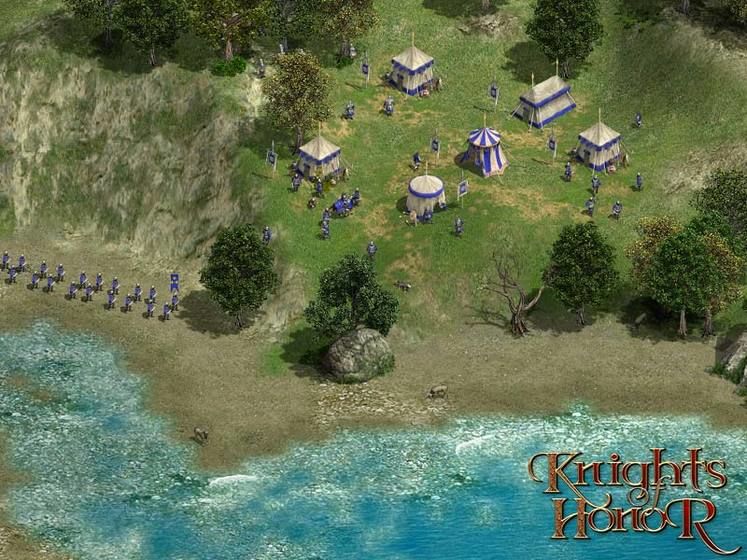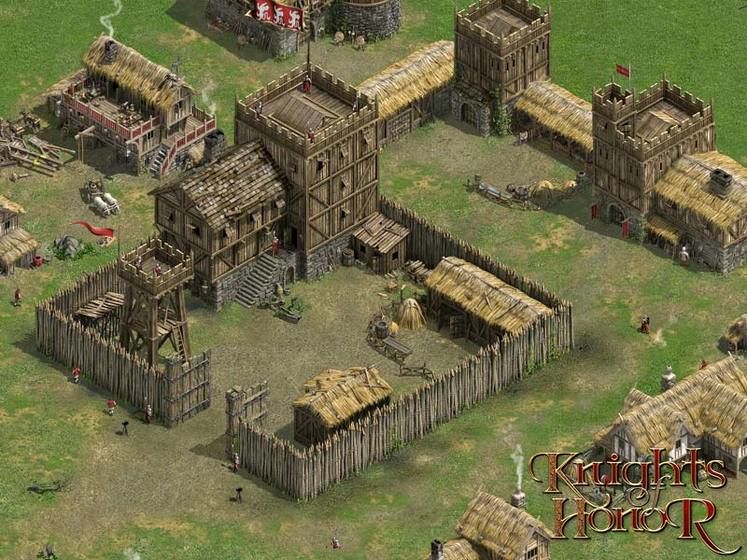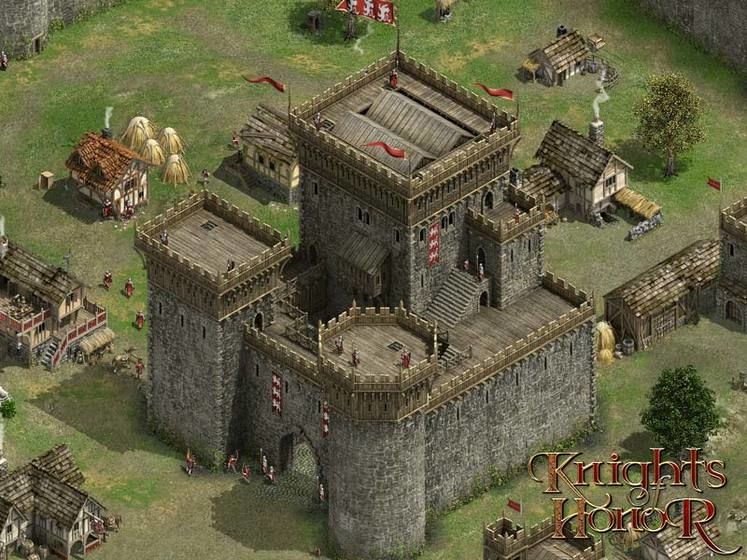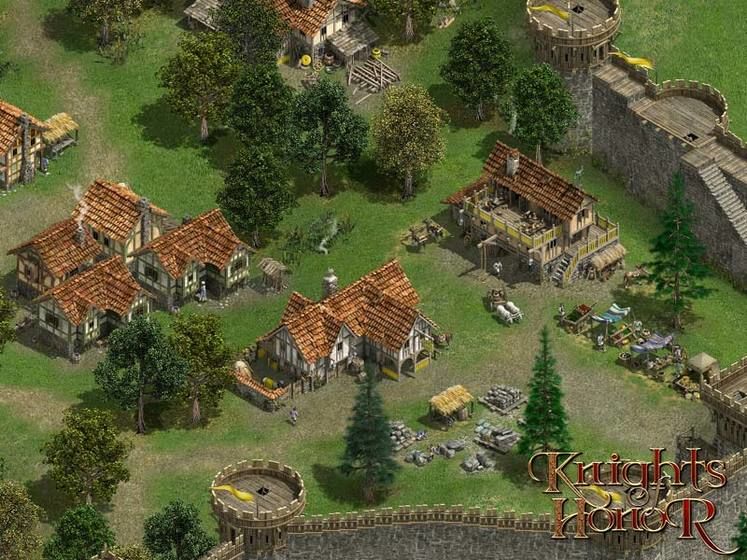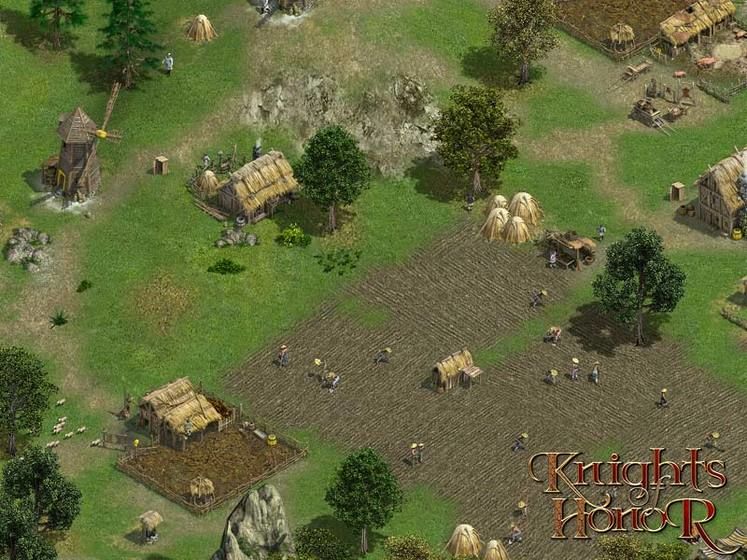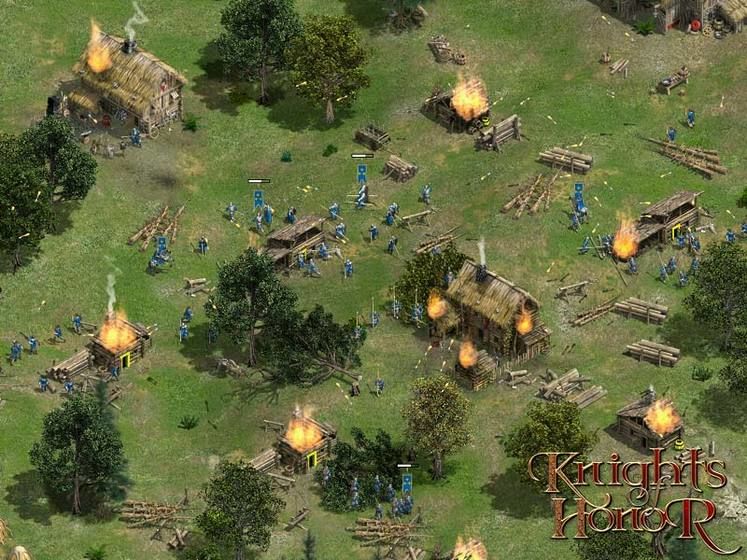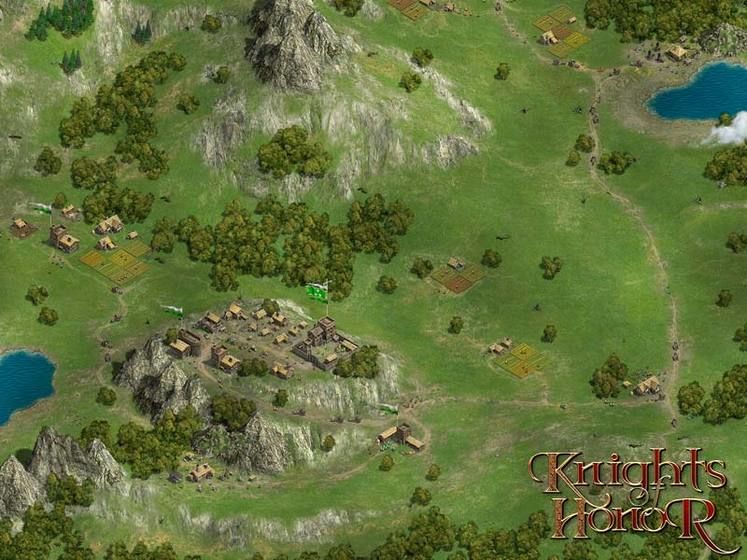Si: Please introduce yourself to our readers.
Vesselin Handjiev: My name is Vesselin Handjiev and I am the lead designer on KoH.
Si: What story will follow us through the campaign?
Vesselin Handjiev: KoH does not follow a predefined storyline. The whole world is alive and reacts to the player's strategy, which means a game's outcome will always be different than those of previous games and cannot be predicted. Kingdoms are destroyed, fall apart, disappear and appear. Realms are conquered and re-conquered regularly. Expect Kingdom borders to change and move.
Si: What we all enjoy in medieval strategy games is building castles and then fighting the enemy from its walls. How will we fight on the field, in the castles and lay siege in Knights of Honor?
Vesselin Handjiev: In KoH there will be different types of battles, where the player can be either defender or attacker. For instance there will be castle assaults, ambushes, battle on open battlefields and coastal landing situations, amongst others. Sieges in KoH are sieges in the traditional common sense, where a castle is besieged and starved out. But a castle can be assaulted, which means the player can attack a castle (or have it attacked) by force. A siege is planned in the World View, where the player sees all of Europe. In this view, he assembles his army and then sends it over to other Castle -> remember, the game is in realtime. The army can be ambushed during travel or meet an enemy army on an open battlefield. Once they arrive at the castle and the player starts to lead his army into battle the game switches seamlessly to the Close View, which looks like a traditional RTS at the first sight. In this view the player controls groups of units and can issue commands or change formation etc. The chosen Knight and his skills will affect the army's behavior, and the player has to incorporate him into his tactics and strategies as well. All battle types can be fought in the Close View, not only castle assaults.
Si: Will we be able to defeat a bigger army on the field through the use of terrain and strategy?
Vesselin Handjiev: A battle in KoH starts at the point when the player trains and assembles an army. The strategy the player follows defines the composition of the army and vice versa. The player has to keep in mind what he wants to do with an army. If assaulting a castle he may then need Siege Equipment. But if he plans to join battle on an open battlefield he will most likely have fast cavalry. Archers, too, are perfect for an ambush. In addition to the fact that archers can shoot farther downhill, morale also plays an important role when it comes to defeating an bigger army. A high level of morale can compensate for a lower number of units. And during battles the morale can change constantly, affected by many things happening during the battles. Another way to deal with a bigger army is to wait until they make camp somewhere to refill and to rest. Then a well prepared night assault on the camp can be deadly. There are many other ways for you to win, actually.
Si: How many difficulty levels will there be? Will the computer be allowed to cheat on higher levels or will he fork the victory on its own? How big resistance can we get from him?
Vesselin Handjiev: We will have three difficulty levels to choose from. The computer will fork the victory on its own. It does not need to cheat. Also, there is not only one enemy, but rather 20+ competing fractions at all three of the game's entry points. Depending on the difficulty level the computer will use espionage and diplomacy as much as the player would do. It will blackmail and stab backs just as the player could do. The goal is to make the other competing Kings act in accordance with human behavior and with their own character.
Si: How massive battles can we expect in KoH?
Vesselin Handjiev: KoH runs completely in realtime and army can be reinforced, which can extend the length of a battle. The total unit number has not been determined yet but it won't be many thousands. However, the battles will be very tactical (if wanted) and formations, unit types etc. play an important role. In a nutshell battles can be either epic or very quick.
Si: How many different types of units will the game feature?
Vesselin Handjiev: The player has at least 25 units at his disposal for battles plus siege equipment. That may sound not much but we can assure you that the units really are unique and you can feel and see the differences. Besides these units there will also be a lot more NPCs, like farmers, bakers, shepherds etc. who enrich the gameworld.
Si: Official description notes that KoH is a medieval game on an empire scope. Can you explain this a bit?
Vesselin Handjiev: First of all the game is completely played in realtime, and in the World View you will see ALL of Europe on a large map, probably the biggest ever in that type of game. This is the main game view and all strategic decisions are made here. The focus of the game is to shift away from micromanagement and allow the player to focus on the global stuff. The player can do basically everything a King did during the middle ages. He can choose between war or peace. Between disgrace and honor. He can spin intrigues or be back stabbed by other Kings. He can lead the important wars personally and leave the non-important to his loyal Knights. He does not need to worry about where to build what, or to make sure that a house road is connected. He grants land and gives orders but he does not need to execute them. He looks after his Knights, makes sure that they remain loyal and improve their skills so that he can have the best bunch of Knights in Europe.
Si: What will we be able to build in our cities?
Vesselin Handjiev: "Towns" sounds to me more medieval than "cities". Each town has its Castle. The player will be able to improve his towns and add buildings, which are affect the economy and military production. The player can upgrade his towns to higher levels, build walls around them and trenches around the Citadel (Castle's main building). In addition he can customize the walls with additional gates, towers, platforms etc. to increase defensive capabilities. It is important to point out that the player may actually have dozens of Towns (approximately 100 in very late game). In the beginning the average Kingdom Size is around 8 towns. So all the game mechanics are designed to actually make players lives easier. We didn't want the player to have to build, let's say, 40 Castles brick by brick.
Si: What resources will we gather in our realm? How will we gather them? Will we be able to trade them off with other kingdoms?
Vesselin Handjiev: Well, we have a very unusual economic model with the corresponding resource gathering. The verb "gathering" is not really correct for Knights of Honor. Actually, the player doesn't need to send villagers to scratch some rocks with their picks for stone or gold or whatever, as in some other RTS games. There are resources, and we can divide them in some categories. Players can increase production of Lumber and Stone in their Kingdom by "specializing" villages in their production or by upgrading those already existing. These two resources are mainly needed for building structures, town development or either increasing town defenses. Weapons are produced in a similar fashion but are used mainly for making, erh ¡K army ¡V what else?
Food also is produced in a similar manner, in rural areas and it is needed to keep the army well fed. Lack of food leads to unhappiness, revolts, a starving army really does fight much more poorly. Not to forget Gold. It comes from taxes, trade with other Kingdoms and, to be honest, from more than 8 other sources, which we prefer to keep secret for now. And, of course, we have some resources which directly reflect the game's medieval setting. At the moment these are: Fame ¡V representing how famous the King is and Piety ¡V reflecting the Kingdom's religious power. These two are very important and really add new dimensions to the game. We will reveal more about that later. Please, do not think that this describes the entire economy. There are a lot more factors involved which combine to forge truly "Royal" and entertaining gameplay. However, the complete economy system in KoH is based on a global Resourcesystem, which is very easy to handle. There is absolutely no need for detailed micro-management. Players will just enjoy the global aspect of Economy.
Si: Please tell us little about the diplomacy. Will we be able to form alliances? Can allies appear in the battles and help in the fight?
Vesselin Handjiev: Diplomacy is very, very important in KoH. We spent close to one year designing the interface needed for the player and the included features, so it is simple, real-time and an extremely powerful tool. The diplomacy is actually one of many possible ways for the player to affect all Europe. It allows them to plan their moves in such a way that no one will backstab them in the North while they are fighting in the South, for example. It is important for me to explain that everything you do in KoH actually does influence the game world around you. For example, when you plunder your neighbors farms, you can not only really piss him off, but some of his friends will get upset and they might even rise to defend their weaker friend. In one of the recent games I played in Black Sea Studios' offices I decided to harass Scotland a bit (I was ruling England) and to make few gold pieces by plundering their villages. So, I invaded, got some quick victories and finally asked them for some tribute. They didn't agree, as their King was a bit touchy (the Kings in KoH all have distinct personalities). So, I asked again, this time extremely bluntly (in KoH you can choose to beg, to negotiate or to brutally insist). In that very moment France declared war on me with the words offending our friend, the Scottish King, can bring you more enemies than you think. So I had to spend three times more from what I got as spoil in Scotland to calm the French down. Unfortunately, it was too late and I lost Bretagne, my only and very important town on the European mainland. We're really having fun playing the game these days. Of course, there are also powerful Espionage features, which can be "considered the other side of the diplomatic coin¡".
For alliances, we have a Non-aggression Agreement, which works in much the same way. You can either pay your friends or just insist that they attack your enemies and/or help you out, etc. We will reveal more about this at a somewhat later.
Si: Will there be any multiplayer?
Vesselin Handjiev: Yes there will be a specific multiplayer mode with up to 6 players. This mode focuses on fast and easy fun. It will feature historical battles and a skirmish mode. One of the battles, for instance, will be the "Battle of Hastings¡¨. In skirmish mode the player can buy units and Knights using a pre-defined gold budget and then do battle on a map. There will be battles in the open field, castle defense, castle attack etc. Imagine a horde of Highland Warriors and Vikings fighting together against Teutonic Champions and Templar Knights.
Si: What aspects of Knights of Honor do you think will attract the fans of medieval ages the most?
Vesselin Handjiev: The focus of the game lies on Empire Conquering and the entire game is build around that. The feeling of being true Royalty and playing on a huge global map will be more compelling than ever before. Whether alone or in combination the Knights and their skills, the diplomacy, espionage and warfare are bound to provide a truly unique experience. The player will get the feeling of truly ruling a living medieval world rather than just that of being a medieval executioner.
